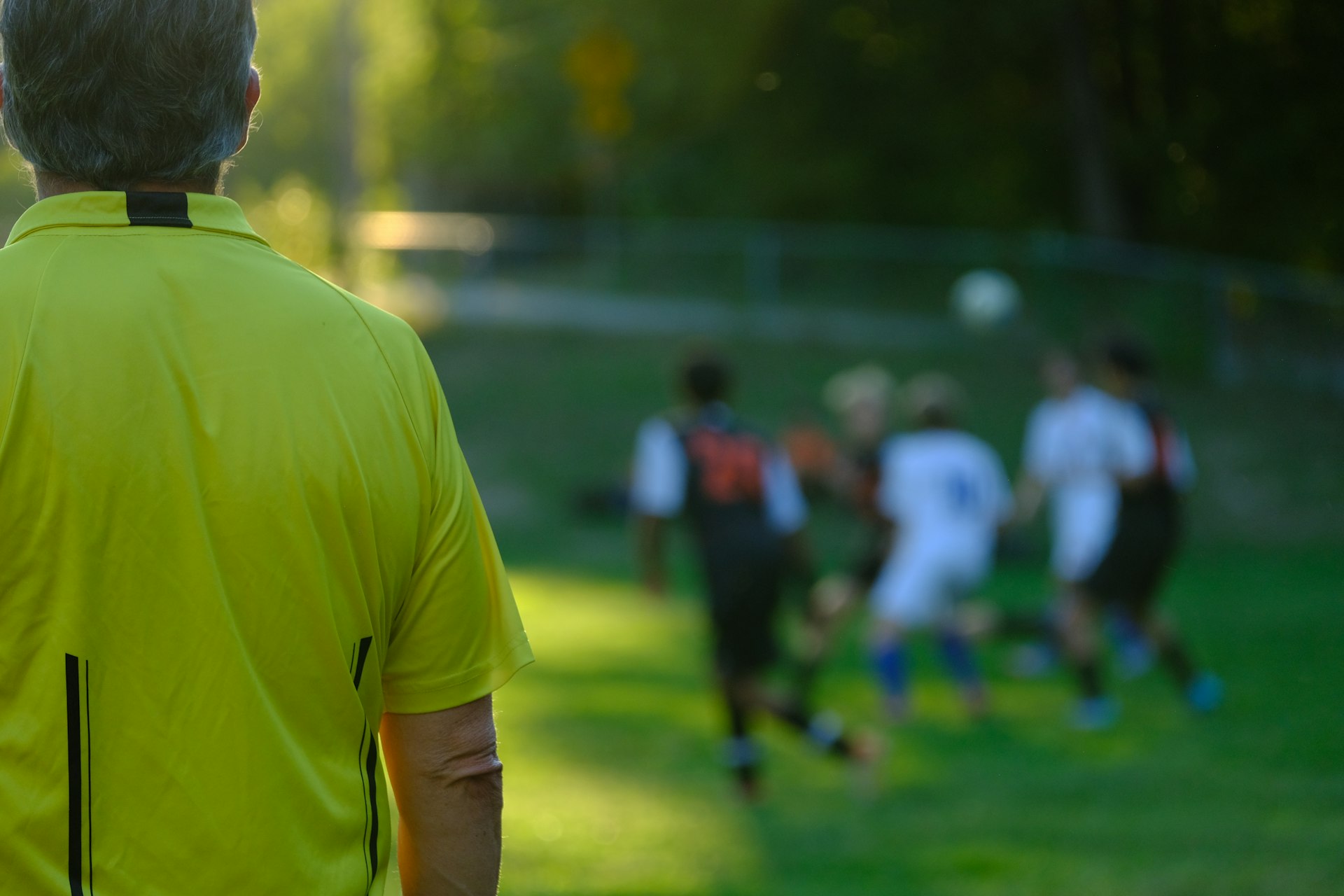Unlocking Athletic Potential: How Sports Psychologists Drive Performance Enhancement

Photo by Will Colavito on Unsplash
The Critical Role of Sports Psychologists in Enhancing Athletic Performance
In today’s highly competitive sports landscape, athletes and teams constantly seek new ways to gain an edge. While physical conditioning and technical skill development are fundamental, there is a growing recognition among coaches, athletes, and organizations that mental performance is equally vital for achieving success. Sports psychologists are professionals trained to address the psychological aspects of performance and help athletes unlock their full potential through targeted mental skills training, emotional support, and evidence-based interventions [1] .
What Do Sports Psychologists Do?
Sports psychologists work closely with athletes, coaches, and sometimes entire teams to address the mental barriers that can inhibit optimal performance. Their services typically include:
- Mental skills training – teaching goal setting, visualization, positive self-talk, and relaxation techniques.
- Performance anxiety management – helping athletes cope with nerves, fear of failure, and high-pressure situations.
- Injury recovery support – providing psychological tools for overcoming trauma and rebuilding confidence post-injury.
- Motivation and focus enhancement – sustaining drive during off-seasons and ensuring consistent concentration during training and competition.
- Team dynamics and communication – improving cohesion and group performance through better interpersonal skills.
These interventions are designed to not only improve performance but also enhance overall well-being and satisfaction in sport [2] .
Key Techniques Used by Sports Psychologists
Sports psychologists employ a range of evidence-based techniques that athletes can implement immediately:
Mental Conditioning
Just as physical conditioning builds strength and endurance,
mental conditioning
develops attributes like resilience, confidence, and composure. Techniques such as
visualization
(mentally rehearsing successful performance),
positive self-talk
(replacing negative thoughts with empowering statements), and
mindfulness practices
(staying present-focused) are regularly taught to athletes at every level
[1]
.
Example: Olympic divers often use visualization techniques before each dive, mentally picturing their successful movement through the air to boost execution consistency.
Managing Performance Anxiety
Performance anxiety is common across all sports. Sports psychologists guide athletes through relaxation exercises, breathing techniques, and stress management protocols to help them remain calm and focused during competitions. Pre-game routines, such as meditation or structured warm-ups, can become powerful tools for managing nerves [2] .
Implementation: You can start by scheduling a quiet five-minute breathing exercise before each practice or game to center your focus and reduce anxiety.
Enhancing Focus and Concentration
Staying focused during key moments is critical for athletic success. Mindfulness training and attentional control exercises help athletes block out distractions and maintain mental clarity. These techniques have been shown to improve decision-making and reaction times, particularly in high-pressure scenarios [3] .
Example: A basketball player may use a simple mantra or cue word to refocus attention at the free-throw line, ensuring consistency regardless of crowd noise or game context.

Photo by Syed Ali on Unsplash
Support During Injury Recovery
Injury can be both physically and emotionally challenging. Sports psychologists assist athletes in coping with frustration or fear related to injury, offering strategies for maintaining motivation and rebuilding self-confidence during rehabilitation. By addressing the mental impact of being sidelined, psychologists help athletes return to play stronger-both mentally and physically [2] , [4] .
Actionable Step: If recovering from an injury, consider journaling your progress and setting small, achievable goals to maintain motivation and measure improvement.
Proven Benefits and Evidence Supporting Sports Psychology
Research highlights that psychological skills training, mindfulness, and imagery can provide moderate improvements in athletic performance, especially when integrated with physical training. However, the degree of benefit may vary depending on the individual, the methodology, and the specific sport. Some studies suggest that more robust research is needed, but the consensus is clear: mental training is a valuable tool in the athlete’s arsenal [5] .
Case Study: Professional soccer teams that implemented structured mental skills programs reported not only enhanced focus and stress management but also improved team communication and on-field results.
How to Access Sports Psychology Services
If you or your team are interested in leveraging sports psychology for performance enhancement, there are several pathways to access these services:
- Contacting your local sports clinic or sports medicine department . Many clinics now employ certified sports psychologists or mental performance consultants.
- Reaching out to university athletic departments , which often have in-house sports psychology professionals available to student-athletes and sometimes the public.
-
Searching for a
licensed sports psychologist
through the
Association for Applied Sport Psychology
(AASP). Visit their official website and utilize the ‘Find a Certified Consultant’ tool to locate professionals in your area. - Consulting with your coach or athletic trainer for referrals. Many have established relationships with sports psychologists or can recommend trusted practitioners.
Note: If you are uncertain about which professional to contact, you can search for “certified sports psychologist near me” and review credentials through official directories, such as those maintained by the AASP and the American Psychological Association’s Division 47 (Exercise & Sport Psychology).
Step-by-Step Guide to Engaging a Sports Psychologist
- Identify your needs. Consider whether you are seeking help with anxiety, focus, injury recovery, or general performance enhancement.
- Research qualified professionals. Use established directories and verify credentials. Look for board certification and relevant experience in your sport.
- Schedule an initial consultation. During your first session, discuss your goals and challenges. A good psychologist will outline a personalized plan.
- Commit to the process. Mental training is most effective when integrated consistently with physical practice. Attend sessions regularly and practice assigned exercises.
- Monitor progress and adjust as needed. Regularly review your improvement and be open to modifying techniques or focus areas to maximize benefit.
For those in school or university settings, check with your athletic department; many institutions offer these services at no additional cost to student-athletes.
Potential Challenges and Solutions
Engaging with sports psychology can sometimes be met with skepticism or stigma. Athletes may worry about being perceived as weak or about the cost of services. To overcome these challenges:
- Normalize mental training by viewing it as part of a comprehensive approach to improving performance, just like strength or conditioning work.
- Explore insurance coverage or institutional support. Some health insurance plans and university programs cover sports psychology consultations.
- Educate stakeholders (coaches, parents, teammates) about the proven benefits of mental training to foster a supportive environment.
Alternative Approaches to Enhancing Mental Performance
While working with a certified sports psychologist is ideal, athletes can also benefit from self-directed learning and peer support. Many books, podcasts, and online courses focus on mental toughness, mindfulness, and performance strategies. Peer-led groups and team workshops can reinforce positive habits and foster accountability. However, when facing persistent mental health or performance barriers, professional guidance is strongly recommended.
Key Takeaways
Sports psychologists play a transformative role in athletic performance enhancement by teaching practical mental skills, supporting injury recovery, managing anxiety, and building resilience. Their interventions can be tailored to individual, team, or organizational needs, and are increasingly recognized as essential for achieving sustained success at all levels of sport. By integrating mental and physical training, athletes maximize their potential and enjoy a more rewarding sports experience.
References
- [1] Sports Psychology.org (2023). The Importance of Sports Psychologists in Athletics.
- [2] Indeed Career Guide (2023). What Is a Sport Psychologist?
- [3] CNOS (2023). Performance Power of the Mind.
- [4] Top End Sports (2023). Sports Psychology and Performance Enhancement.
- [5] NCBI (2023). Effects of Psychological Interventions to Enhance Athletic Performance.



